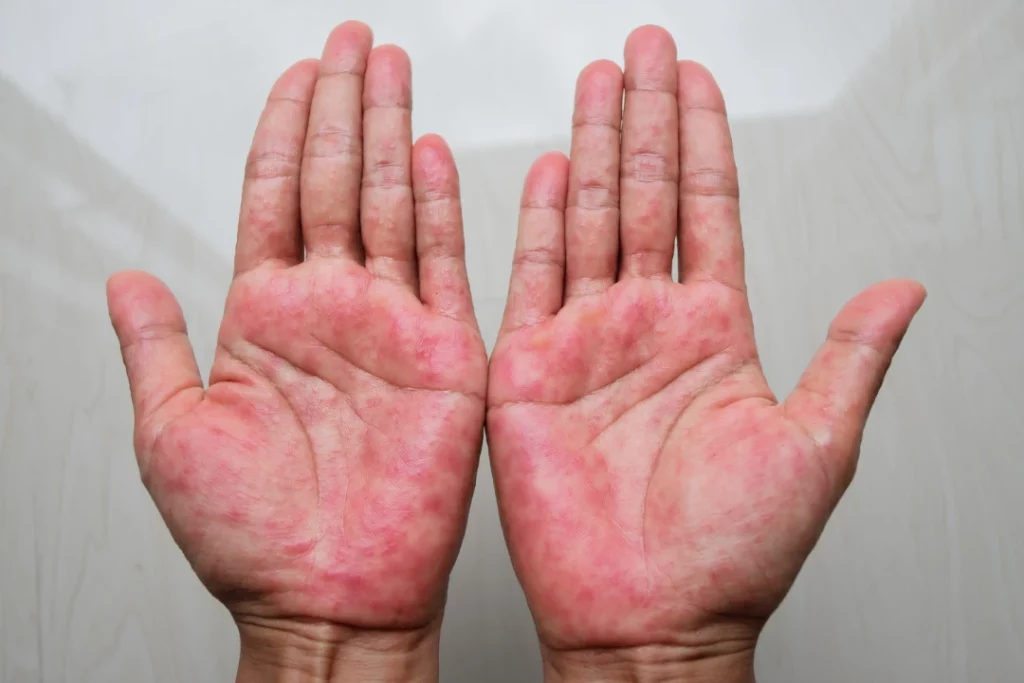
Eczema, a chronic skin condition characterized by dry, itchy, and inflamed skin, affects millions of people worldwide. Its triggers vary from allergens to stress, and while there are conventional treatments available, many are turning to natural remedies for a gentler approach. Understanding the benefits of herbal solutions and lifestyle adjustments can offer a path toward clearer, healthier skin without relying solely on pharmaceuticals.
The appeal of natural remedies lies in their potential to not only alleviate symptoms but also address the underlying causes of eczema flare-ups. With the right combination of herbal treatments and lifestyle changes, it’s possible to reduce flare-ups, soothe irritated skin, and improve overall skin health. This article will explore how herbal remedies and daily habits can provide long-term relief from eczema, empowering you to take control of your skin’s health in a more holistic way.
Read Also:
- Herbs to Reduce Stress and Anxiety: Natural Solutions for a Calmer Mind
- Natural Cough Suppressants: Herbal Treatments to Calm a Persistent Cough
- Natural Remedies for Inflammation: How to Reduce Pain and Swelling Naturally
- Kalms Tablets: Do These Herbal Sleep Aids Really Work?
- Natural Antibiotics for Tooth Infections: Can Herbs Replace Antibiotics?
- Natural Remedies for Eczema: Herbal and Lifestyle Changes for Clearer Skin
- Herbal Treatments for Vaginal Dryness: Natural Solutions for Comfort
- The Ultimate Guide to Natural Sleep Remedies for Deep, Restful Sleep
- Herbal Remedies for Menopause Symptoms: Cooling Hot Flashes and More
- How I Cured My PMDD Naturally: A Holistic Approach
- The Ultimate Guide to Gut Health: How It Impacts Your Immune System, Mood, and Overall Wellness
- How to Create Balanced Meals: The Essential Role of Macronutrients and Micronutrients
Whether you’re seeking alternatives to corticosteroid creams or simply looking to complement your current regimen with natural solutions, this guide will provide practical, easy-to-implement strategies. From soothing herbal treatments to making dietary and environmental changes, these remedies offer an approach that emphasizes balance and well-being.
Herbal Remedies for Eczema Relief
Natural remedies derived from plants have long been used to treat a variety of skin conditions, including eczema. These herbal treatments can provide soothing relief, reduce inflammation, and promote skin healing. Below are some of the most effective herbs for managing eczema symptoms.
Aloe Vera: Nature’s Moisturizer
Aloe vera is well-known for its soothing and moisturizing properties. This plant has anti-inflammatory effects, making it perfect for calming the irritation that eczema causes. Applying aloe vera gel directly to the skin provides instant relief from itching and helps in moisturizing dry, scaly patches.
A study published in the Indian Journal of Dermatology supports its effectiveness in treating skin conditions like eczema. The gel contains compounds like acemannan, which boost collagen production and skin repair. Moreover, aloe vera is a natural humectant, drawing moisture from the air into the skin, making it an excellent choice for eczema sufferers prone to dry, flaky skin.
Benefits of Aloe Vera for Eczema:
- Reduces itching and inflammation.
- Promotes skin healing.
- Moisturizes dry, flaky skin.
Chamomile: A Natural Anti-Inflammatory

Chamomile has been widely used in herbal medicine for its calming and anti-inflammatory properties. Chamomile tea or oil can be applied topically to soothe irritated skin and reduce redness. This herb contains the compound bisabolol, which helps reduce inflammation while also promoting healing.
Topical chamomile has been shown to reduce itching and irritation caused by eczema. It is particularly useful for sensitive skin and can be applied in the form of creams, oils, or even tea compresses.
Benefits of Chamomile for Eczema:
- Reduces redness and inflammation.
- Soothes itching and irritation.
- Safe for sensitive skin.
Calendula: Healing and Hydration
Calendula, commonly known as marigold, has strong anti-inflammatory and antimicrobial properties. It’s often used in creams or ointments to heal minor wounds and skin irritations. Calendula works well for eczema due to its ability to promote skin hydration and speed up the healing process. Regular application of calendula-based products can significantly reduce flare-ups and improve skin texture.
Calendula oil, in particular, is rich in antioxidants that help fight inflammation, providing both relief from itching and a protective barrier against irritants.
Benefits of Calendula for Eczema:
- Accelerates wound healing.
- Hydrates and soothes dry skin.
- Provides a protective barrier against irritants.
Lifestyle Changes to Support Skin Health
In addition to herbal remedies, making specific lifestyle changes can greatly reduce eczema flare-ups. These changes focus on reducing environmental triggers, improving hydration, and managing stress, all of which are key factors in managing eczema.
Diet and Hydration: Nourish from Within
What you eat can have a direct impact on the condition of your skin. Certain foods may trigger eczema flare-ups, while others can help manage inflammation. Increasing your intake of anti-inflammatory foods such as fatty fish, nuts, seeds, and leafy green vegetables can significantly improve skin health.
It’s also important to stay hydrated. Drinking plenty of water helps keep the skin moist from the inside out, which is essential for preventing the dryness that often triggers eczema. Incorporating hydrating foods like cucumbers, watermelon, and oranges into your diet can also support your skin’s health.
Tips for Diet and Hydration:
- Include omega-3 rich foods like salmon and flaxseeds.
- Stay hydrated by drinking at least 8 glasses of water daily.
- Avoid common allergens like dairy, gluten, and processed foods.
Stress Management: The Mind-Skin Connection
Stress is a known trigger for eczema, often leading to flare-ups or worsening symptoms. Implementing stress-reducing practices such as mindfulness, yoga, or deep breathing exercises can make a significant difference in managing eczema.
Studies have shown that stress directly impacts the immune system, which in turn can lead to skin inflammation. Taking time each day to relax and engage in activities that reduce stress can help in controlling eczema symptoms.
Stress-Reduction Techniques:
- Practice meditation or mindfulness exercises.
- Incorporate yoga or gentle stretching into your daily routine.
- Take breaks throughout the day to reduce overall stress levels.
Environmental Triggers: Reducing Irritants
Environmental factors, such as allergens, pollutants, and even fabrics, can exacerbate eczema. Reducing exposure to known irritants is crucial for managing the condition. Opting for natural fabrics like cotton, avoiding harsh soaps and detergents, and using hypoallergenic skincare products can significantly reduce flare-ups.
Keeping the home environment free from dust, pet dander, and mold can also reduce eczema triggers. Consider using air purifiers or regularly cleaning areas where allergens are likely to accumulate.
Tips to Reduce Environmental Triggers:
- Choose cotton or other natural fabrics.
- Use fragrance-free, hypoallergenic soaps and detergents.
- Clean your living space regularly to reduce dust and allergens.
Conclusion
Incorporating herbal remedies and lifestyle changes into your eczema management routine can provide long-term relief and clearer skin. Aloe vera, chamomile, and calendula offer natural, effective options for soothing eczema symptoms, while dietary adjustments, hydration, and stress management help reduce flare-ups.
By understanding the triggers of eczema and addressing them with natural solutions, you can achieve healthier, more resilient skin. Whether you’re exploring natural remedies for the first time or looking to complement your current treatment plan, these holistic approaches provide both immediate relief and long-term benefits.
Remember to be consistent with your routine, as natural remedies often take time to show their full effects. For best results, consult with a healthcare provider or dermatologist before making significant changes to your skincare or lifestyle regimen.









